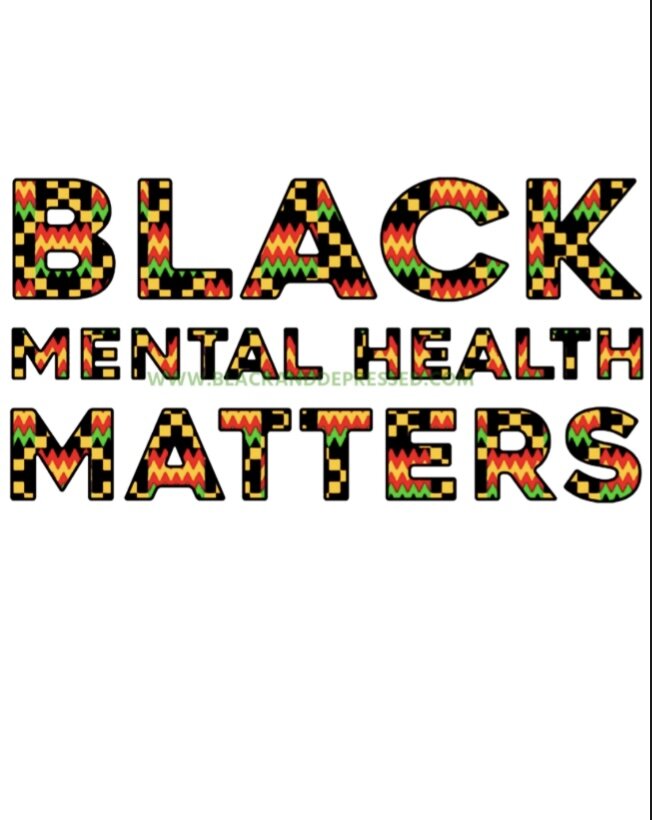Mental Health in the Black Community… How’s yours
Just today I read an article in the most recent edition of Web MD,a magazine full of editorials that are written by many different medical professionals.The topic caught my eye as it focused on mental health in the black community. The article highlighted 5 barriers that prevent this demographic from receiving the help that it needs. Below you will find the 5 identified barriers and a brief explanation from my own thoughts of why the barriers exists.
1. Avoiding the label "Crazy" – There is a misunderstanding of what mental health actually is, based on the way that mental health is typically portrayed in the media. The media and entertainment often zooms in on an individual in their Crisis moment, consequently this makes those that suffer from mental illness to suffer in silence due to not wanting to be a visual representation of mental illness.
2. Pray the Problem Away- with African Americans only making up about 14% of the US population, 8 in 10 blacks identify as Christian, which has a major influence over mental health. Many blacks that identify with religion are very reluctant to participate in mental health services, and would rather rely on the Bible's recollections of miracles and faith as not only a preventative measure but use prayer alone as a way to overcome mental illness. I’m most cases this is not adequate treatment.
3. Mistrust of the system- Many times blacks are reluctant to turn to mental health services because the majority of business that over serviced are grass root programs typically funded by the government. Historically, when the government is involved much is to be reported, which has the ability to lead to the exploitation of the vulnerable and disenfranchised individuals as it is related to mandated reporting. Blacks are less likely to accept government programing as a sense of healing. The question that most blacks ponder is ,“How can the oppressor heal the oppressed? '' Let's not mention the numerous experiments that have been done on black people in the name of healing . The level of trust has been dissipated to say the least
4. Lack of Clinicians of Color-Ensuring access to care is critical, however good luck with finding a Black therapist. Only 4% of social workers are black and only 2% of Psychiatrist are black. Distrust often trumps trust, which plays a significant role when it comes to regurgitating trauma to a non black mental health professional. Not too many are going to be comfortable dispelling their life , recalling past traumas, and life regrets with a person that doesn’t share the same skin color as them or that can not relate to the ongoing struggle of the black person in America. Black men face another barrier which is the lack of black male presence in mental health, therefore making it more difficult to seek a counselor that they are comfortable with and can relate their struggles.
5. Teens and Therapy - Mental health doesn’t only affect the older population but the younger population as well.In the last past decade suicide rates continue to be lower amongst black children compared to their white counterparts, therefore it may seem as if our youth are not at risk, however that is the furthest things from the truth. The younger population appears to be more open minded when it comes to mental Health and counseling services ;more than their elders; this could have everything to do with an increased academia amongst this cohort. Nevertheless, the “Don’t tell what is going on in this house”mentality that is still applied and serves as a barrier to care for those who are really needing their mental health addressed. Many preconceived notions by the parents of these children assist in perpetuating the many stigmas of mental health.
After reading much of this dialogue and coming up with my own theories of why theses barriers exist in the black community, the only thing left to do is to think about how we remove the barriers so that we can continue to heal and stopped being forced to walk through life without being able to address the mental health concerns that play a major role in our daily lives. Individuals, families, and communities should take a look at these five barriers to mental health and discuss them. We have to ask ourselves if the boundaries that we had to put up to protect us are actually holding us back. We have to acknowledge the work we do and make sure that we are creating services with our people in mind so that we can make sure we are cultivating a workforce that is aimed at the upward mobility of our people and not just our pocket. We can all start by asking ourselves :
What are my feelings about mental health ?
Am I creating a barrier to my mental health, if so why?
How will the degree I get better serve my people?
How does my professional expertise better help me assist my people?
How do I feel at these barriers?
Are these barriers vadild, if so why?
What doI need from my community to better manage my mental health?
Read the whole article :https://img.webmd.com/dtmcms/live/webmd/consumer_assets/site_images/magazine/digital_issues_pdf/Jan-Feb-Mar-2021.pdf


